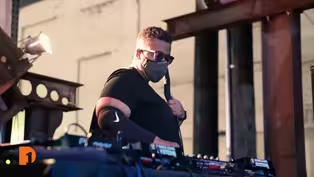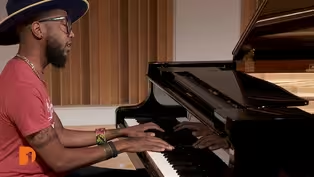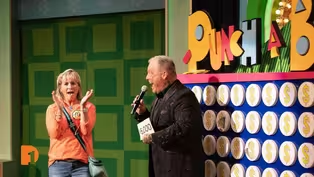
African American opera tenor, trailblazer George Shirley
Clip: Season 9 Episode 32 | 6m 51sVideo has Closed Captions
African American opera tenor George Shirley reflects on his trailblazing music career.
As one of the first African American operatic performers, renowned tenor and trailblazer George Shirley’s contributions to the world of opera and music education have left an indelible mark on the industry. Shirley sat down with One Detroit contributor Cecelia Sharpe of 90.9 WRCJ to talk about his remarkable entry into the opera scene and his history as a music educator.
Problems playing video? | Closed Captioning Feedback
Problems playing video? | Closed Captioning Feedback
One Detroit is a local public television program presented by Detroit PBS

African American opera tenor, trailblazer George Shirley
Clip: Season 9 Episode 32 | 6m 51sVideo has Closed Captions
As one of the first African American operatic performers, renowned tenor and trailblazer George Shirley’s contributions to the world of opera and music education have left an indelible mark on the industry. Shirley sat down with One Detroit contributor Cecelia Sharpe of 90.9 WRCJ to talk about his remarkable entry into the opera scene and his history as a music educator.
Problems playing video? | Closed Captioning Feedback
How to Watch One Detroit
One Detroit is available to stream on pbs.org and the free PBS App, available on iPhone, Apple TV, Android TV, Android smartphones, Amazon Fire TV, Amazon Fire Tablet, Roku, Samsung Smart TV, and Vizio.
Providing Support for PBS.org
Learn Moreabout PBS online sponsorship(upbeat music) - I am here with Professor George Shirley, the first African-American member of the Army Chorus, the first African-American to teach music in Detroit public high schools, the first African-American male tenor to sing leading roles with the Metropolitan Opera, and the list goes on.
Let's rewind time just a little bit.
Professor Shirley, you really didn't have plans to be an opera singer.
You were about to get married and teach music in Detroit public schools.
And then what happened?
- Well, the Army happened, the draft happened, my life was set, my dreams were fulfilled.
And we were planning on getting married in August of 1956 and got a letter from Uncle Sam in about March or April 1956 saying basically "You're going to be married to me in June."
The word went out that the Army was going to create a singing organization to be attached to the United States Army Band in Washington DC.
The band had been formed in 1934, 35, and it had never had a Black member.
So I decided to go in as a bandsman.
So I went into the Army playing euphonium.
- How did you really matriculate into the world of opera?
- So along with two other members of the band who were not that happy with that prospect, both of them were white.
We decided to take a leave of absence and go to Washington and audition for the chorus.
The conductor of the chorus, a fellow named Samuel Loboda, he was a captain, he was second in command of the Army Band.
And my two colleagues sang their auditions.
And Loboda, who was very direct, he was a really incredible man, he said, "Well thank you very much for coming.
We won't be able to use you."
And I thought, mmm-mmm-mmm.
My turn came and I sang and he said, "Can you wait a few minutes" after I finished.
I said yes sir.
And he disappeared into the command room.
A few minutes became at least a half hour.
And I'm sitting there thinking, that's the same old stuff.
Same.
So he finally came out and he said, "Well, we decided that we would like to have you join us if it's what you really want."
I found out years later that Sam Loboda had to go all the way to the Pentagon to get me in.
That was America.
- Tell us about the value of a quality music education at the elementary level on up through high school.
- I didn't, I mean, I'd been singing ever since I was five years old with my parents in church in Indianapolis.
And then we came here and encountered one of the greatest systems of public school music education in the country in Detroit.
And for me, it's a primal force in educating people.
It doesn't mean that someone who has profited by studying music is going to become a necessarily a professional musician, but it means that the brain has been trained in certain ways that can be used, activated in professions that have nothing to do per se with music.
There are people who are CEOs of companies who are excellent musicians.
I mean, Einstein was a musician.
So you're taking away something that is essential, really essential in helping to grow the brain.
- You've taught at universities, you're teaching, you're a distinguished professor at the University of Michigan, but you also have a vocal competition that started about 11 years ago.
- I have a former student, Louise Toppin.
She and I came up with this idea of a vocal competition focused on the art songs and the classical compositions of African-American composers.
It has grown over the years to include university students.
Still has high school level.
And it has become international.
The University of Michigan School of Music, Theater, and Dance is now going to house this competition.
And it's a dream come true.
The music, the class is so-called classical music of Black composers has not really been made as accessible and has not been taught to the degree that it should be.
And that's being changed now at Michigan at the School of Music.
And it's open to all ethnicities because music belongs to everyone.
I don't care what you look like.
If I can sing Italian to Italians or French to the French or German to the Germans or anything else, then everybody has a right to sing the works of African-American composers.
I don't take credit for having been given the gift of song.
I had nothing to do with that.
I don't remember asking the intelligence the created me, can I be a singer, can I be an opera singer, can I be a teacher?
I was given the gift, and I was also given the work ethic to develop the gift.
(George singing in foreign language)
Detroit DJ Whodat talks house music, Black women artistry
Video has Closed Captions
Clip: S9 Ep32 | 5m 28s | Detroit DJ Whodat talks about being an African American woman in the music industry. (5m 28s)
The history, influence of African American religious music
Video has Closed Captions
Clip: S9 Ep32 | 7m 47s | Religious leaders from Detroit explore the history and influence of Black religious music. (7m 47s)
Things to do around Detroit this weekend: February 7, 2025
Video has Closed Captions
Clip: S9 Ep32 | 1m 58s | Black History Month events, upcoming performances and more happening this weekend. (1m 58s)
Providing Support for PBS.org
Learn Moreabout PBS online sponsorship
- News and Public Affairs

Top journalists deliver compelling original analysis of the hour's headlines.

- News and Public Affairs

FRONTLINE is investigative journalism that questions, explains and changes our world.












Support for PBS provided by:
One Detroit is a local public television program presented by Detroit PBS


